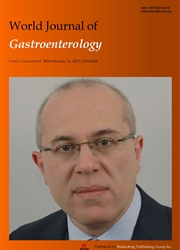

 中文摘要:
中文摘要:
尖锐胰腺炎(AP ) 原因激活血小板的因素(PAF ) 释放,它导致贡献循环骚乱和多重机关失败的全身的效果。PAF 活跃类脂化合物,它能由绑定生产生理、病理学的效果到它的房间表面受体把激活血小板的因素受体(PAF-R ) 称为的简历的房间表面分泌物。研究证明 PAF 参予 AP 的出现和发展,激活血小板的因素受体对手(PAF 地岬) 的管理能显著地在 AP 以后减少本地、全身的事件。PAF 也在严重 AP 的前进作为一个关键调停人被含有,它能导致复杂并发症和 unacceptably 高的死亡率。混合物的几个班在减少煽动性的变化上显示出重要 PAF 地岬,和重要本地、全身的效果。作为季节前疗法, PAF-RA 能堵住一系列调停 PAF 的煽动性的损害并且因此改进 AP 的预后。这评论在 AP 的处理介绍 PAF-RA 的重要角色。
 英文摘要:
英文摘要:
Acute pancreatitis (AP) causes release of platelet-activating factor (PAF), which induces systemic effects that contribute to circulatory disturbances and multiple organ failure. PAF is a cell surface secretion of bioactive lipid, which could produce physiological and pathological effects by binding to its cell surface receptor called platelet-activating factor receptor (PAF-R). Studies showed that PAF participates in the occurrence and development of AP and administration of platelet-activating factor receptor antagonists (PAF-RAs) could significantly reduce local and systemic events after AP. PAF has also been implicated as a key mediator in the progression of severe AP, which can lead to complications and unacceptably high mortality rates. Several classes of PAF-RA show PAF- RAs significant local and systemic effects on reducing inflammatory changes. As a preventive treatment, PAF-RA could block a series of PAF-mediated inflammatory injury and thus improve the prognosis of AP. This review introduces the important role of PAF-RA in the treatment of AP.
 同期刊论文项目
同期刊论文项目
 同项目期刊论文
同项目期刊论文
 期刊信息
期刊信息
